What Every Writer Should Know: Laura Joyce Davis on the California Writers Exchange
Recently, Poets & Writers awarded one poet and one fiction writer with a trip to New York to meet with editors, agents, and other literary professionals as part of the California Writers Exchange contest. The winning fiction writer, Laura Joyce Davis of Oakland, blogs about her experience.
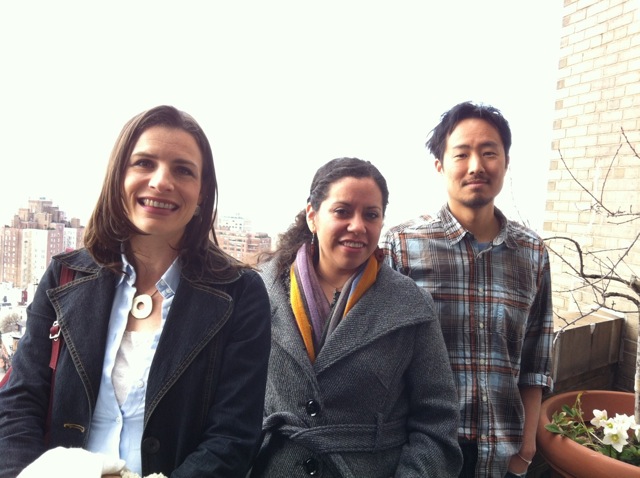 I am so grateful to Poets & Writers for the once-in-a-lifetime experience of the California Writers Exchange! I heard people say this week that there’s no mystery in publishing, but for those of us not in New York, it can feel mystifying. In an attempt to pull back the curtain and share what I’ve learned, I give you my Top Ten Things Every Writer Should Know:
I am so grateful to Poets & Writers for the once-in-a-lifetime experience of the California Writers Exchange! I heard people say this week that there’s no mystery in publishing, but for those of us not in New York, it can feel mystifying. In an attempt to pull back the curtain and share what I’ve learned, I give you my Top Ten Things Every Writer Should Know:
1. Revise like it’s your full-time job.
Agents and editors alike emphasized revising, putting your book away for a couple of months, revising again, getting feedback—and then repeating until you reach perfection (or something like it).
2. Read, read, read!
The only way writers will survive is if people buy their books. But reading also helps you discern where to send your work. This is true of literary journals (where you’re looking for a natural home for your writing) as well as books (if you find a book like yours, the agent and editor for that book might also like your book).
3. Get connected.
Pick up one of the “best of” collections, look at which magazines nominated the authors there, and then submit to those magazines (referencing the story you enjoyed in the collection). This helps on two levels: It shows that you did your research, but also that you have a sense of the kinds of stories they publish and love.
If you have a connection to an editor (even a small one, like a personalized rejection), mention it. Writers who get a personalized rejection are sometimes flagged so that future submissions will be read by more senior editors rather than by interns or whoever looks at the slush pile.
4. Be a man (or be like one).
VIDA showed us that men are published in greater numbers than women. I learned this week that men also submit in greater numbers, are more likely to submit again after being rejected, or write letters to the editor pitching story ideas. Women, let’s put ourselves out there more.
5. Develop a thick skin.
I met an author who submitted to 150 agents over the course of four years, finally found an agent, and then sold his book in two weeks. Another writer sold her book to a major publisher, but was tormented by a few negative reviews on GoodReads (even though most people love her book). No matter how successful you are, you will still face rejection, and there will always be someone who doesn’t like your book.
6. Persevere.
It has never been so easy to be a writer, but so difficult to be a professional one. The good news is that for the persistent, things seem to work out eventually. Maybe (okay, probably) you won’t get a six-figure advance or be in Oprah’s book club, but with a lot of diligence, your book will be edited and published by someone who loves it just as much as you do.
7. Get involved in your local literary community.
Volunteer with your local literary magazine. Go to readings. Help out other writers. The people you help may end up buying your book, and the journals you assist may take a closer look at your story. Plugging into our literary communities means we are part of the conversation of what is happening in publishing and in life.
8. Look for creative opportunities to publish and build a platform.
Blog. Write interviews and essays. Speak at events. Tweet. These things are good promotion, but will also connect you with the people who are going to care about your book once it comes out.
9. Remember that we’re all just people.
Many of the agents and editors I met said that they wished authors understood that they are human. They have a full client list, dozens of manuscripts to read, and hundreds of new queries every week. Remember that people in the publishing industry have lives (and kids and hard days and relationships) just like you do.
10. Keep writing!
Remember that agents and editors are not disdainful of new writers or eager to reject; they are waiting for the next story that makes them miss their subway stop. There will always be room in the world for great writing. May that challenge us all to produce it!
Photo: From left: Laura Joyce Davis, Xochitl-Julisa Bermejo, and Jeffrey Yang of New Directions. Credit: Jamie FitzGerald.
The California Writers Exchange contest is made possible by a generous grant from the James Irvine Foundation. For more information on the contest, visit here.





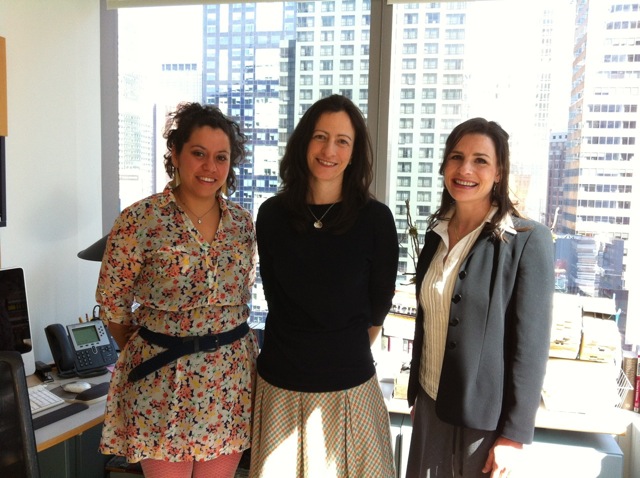 The invaluable gift this trip has given me is confidence to know that I am moving in the right direction, and that as long as I keep working on my writing, I will reach my goals. Being able to walk into the offices of The New Yorker has been a crazy experience, but it has also shown me that everyone is in this “business” because they love books, and everyone works extremely hard to put out their best work because of that love. Often this work will be thankless, but as New Yorker fiction editor Deborah Treisman told me, “Don’t be afraid to be rejected.”
The invaluable gift this trip has given me is confidence to know that I am moving in the right direction, and that as long as I keep working on my writing, I will reach my goals. Being able to walk into the offices of The New Yorker has been a crazy experience, but it has also shown me that everyone is in this “business” because they love books, and everyone works extremely hard to put out their best work because of that love. Often this work will be thankless, but as New Yorker fiction editor Deborah Treisman told me, “Don’t be afraid to be rejected.” 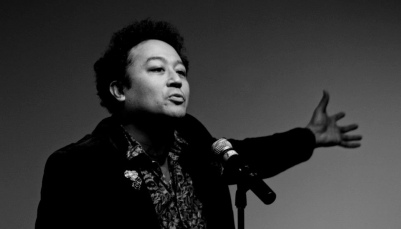 For the last three years, I have been working with the D.C. Commission for the Arts on Poetry Out Loud, A National Poetry Recitation Competition. This year, I have worked primarily with McKinley Technological High School and Latin Public Charter School. My job is to help students find their unique interpretations of poetry selected by Poetry Out Loud. The competition goes from local high school, to the state level, and then to the national competition.
For the last three years, I have been working with the D.C. Commission for the Arts on Poetry Out Loud, A National Poetry Recitation Competition. This year, I have worked primarily with McKinley Technological High School and Latin Public Charter School. My job is to help students find their unique interpretations of poetry selected by Poetry Out Loud. The competition goes from local high school, to the state level, and then to the national competition.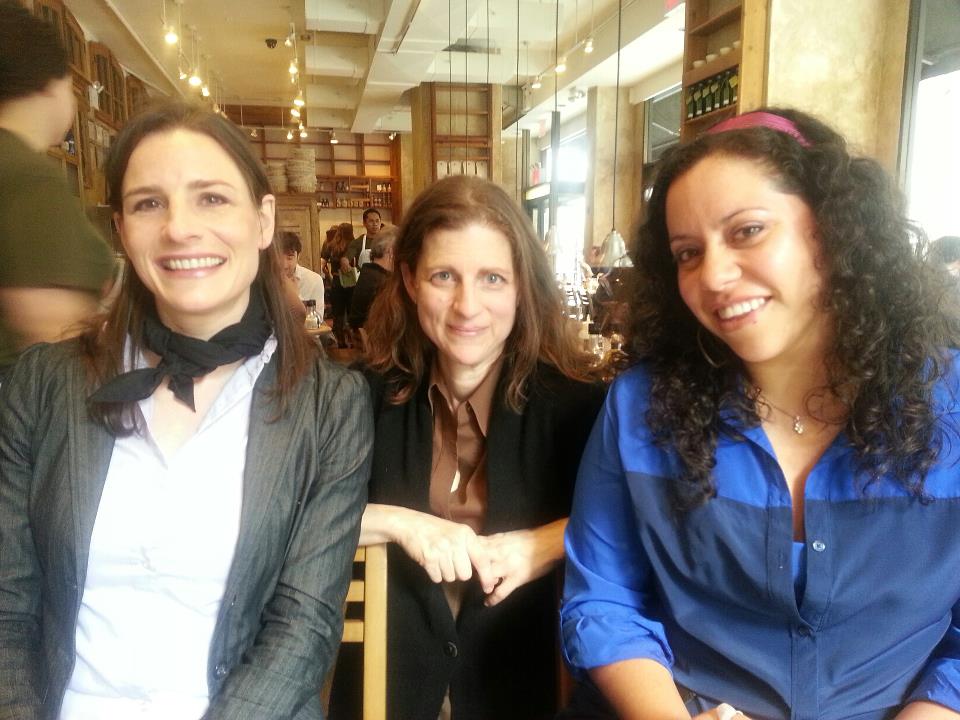 I am living a writer’s dream.
I am living a writer’s dream. 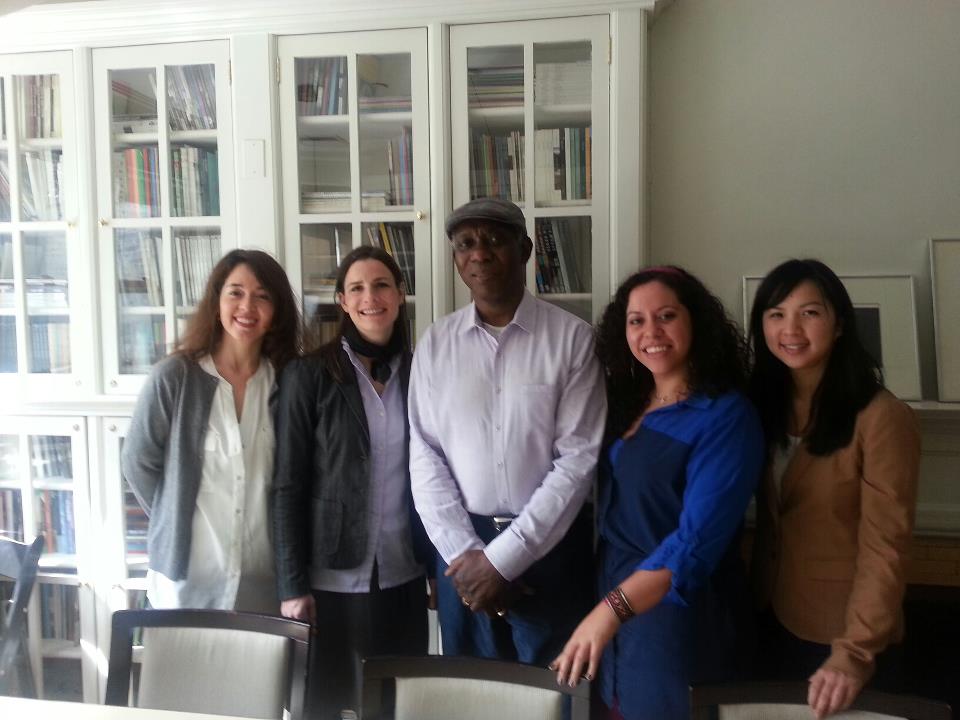 It is now 4:41 p.m., I’m sitting in my room on the seventh floor of the Gershwin Hotel in Midtown, and I have to be in the lobby ready to go to my first New York reading by 6 p.m. I got back to my room at 10:30 last night after a delicious Indian dinner with Yale Younger Poet Eduardo C. Corral, my fellow contest winner Laura Joyce Davis, and staff from Poets & Writers. Eduardo laughed at the lamb chops I ordered over dinner: “You know how to do it.”
It is now 4:41 p.m., I’m sitting in my room on the seventh floor of the Gershwin Hotel in Midtown, and I have to be in the lobby ready to go to my first New York reading by 6 p.m. I got back to my room at 10:30 last night after a delicious Indian dinner with Yale Younger Poet Eduardo C. Corral, my fellow contest winner Laura Joyce Davis, and staff from Poets & Writers. Eduardo laughed at the lamb chops I ordered over dinner: “You know how to do it.”